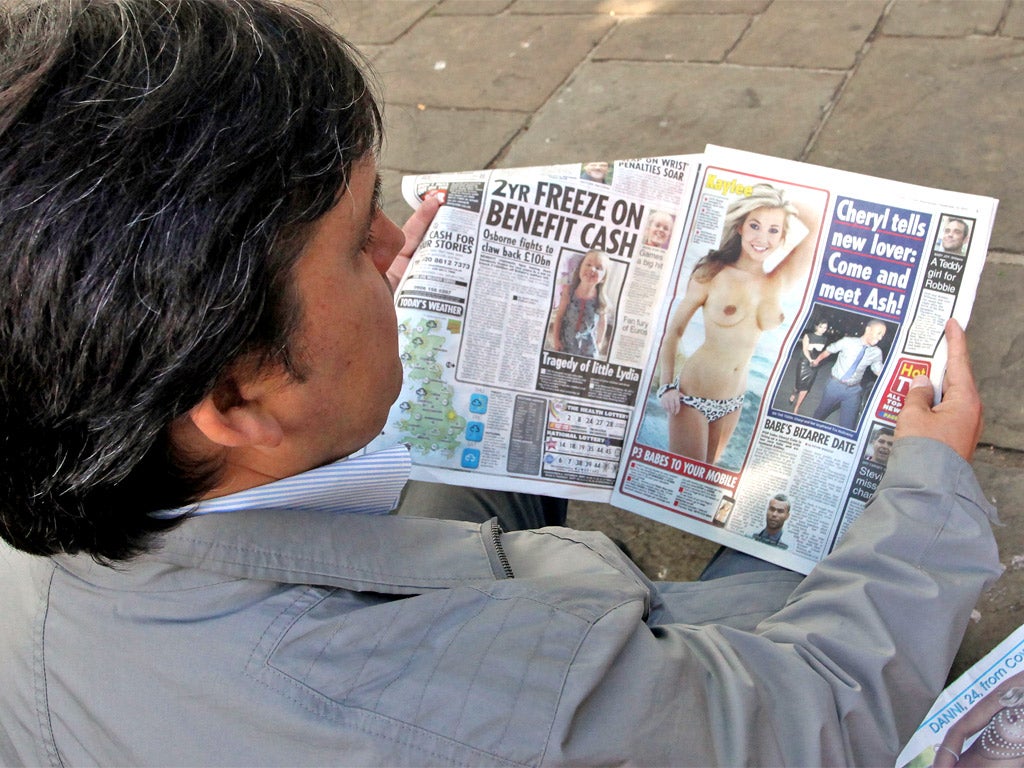Ban Page 3, Lord Leveson, and put an end to upskirt shots, media sexism and discrimination
The CEO of OBJECT makes the case for regulation to curb sexism in the press

Women make up half of the population, and if we care about ending discrimination and violence against women and girls, then we must reject the reduction of women to sex objects, and challenge the rape myths and victim-blaming attitudes too often peddled in our national newspapers. We will not achieve equality whilst we are either made invisible, or are trivialised, objectified, and vilified on the basis of what we look like, and if crimes against women and girls are not taken seriously in their reporting.
Sexism in the British press is endemic. That was the finding of a report launched this week by OBJECT, Eaves, End Violence Against Women Coalition, and Equality Now. The joint report examined 11 newspapers over a two week period in September 2012. It found alarming levels of: inaccurate and victim-blaming attitudes in the reporting of violence against women; persistent objectification and sexualisation of women based on sexist, racist and ageist stereotypes, including Page 3 images, up-skirt photography and explicit advertisements for the sex industry; and examples of women in public life being subjected to ridicule and humiliation on the basis of their appearance. All of which were unparalleled for men.
This portrayal of women is not an issue of “taste and decency”, it is a form of discrimination. This discrimination has direct implications for women’s participation in the public sphere, and for issues related to self-esteem. It has implications, too, for male attitudes about inequality and violence against women and girls.
The need for guidelines and restrictions to address media sexism is clear. Such guidelines would ensure that images so degrading that they had to be censored by the Leveson Inquiry when submitted as evidence, and which were removed from Facebook are no longer contained in mainstream tabloids sold on the bottom shelf of newsagents without age restriction. And ensure that parts of the press no longer mis-report rape in a way that the Chief Prosecutor for the Crown Prosecution Service, Alison Saunders, described as undermining justice by prejudicing jurors and discouraging victims from coming forward.
The Leveson Inquiry is a historic opportunity for media reform. If we are serious about eliminating discrimination and tackling the attitudes and behaviours associated with violence against women and girls, then it is imperative that we take this opportunity to ensure that the portrayal of women remains on the “Leveson agenda”.
This is not about censorship, it is about establishing a press that serves the public interest and a press that, at the very least, does no harm. This is the press that we deserve.
Anna van Heeswijk is CEO of OBJECT which campaigns against the objectification of women in the media; www.object.org.uk
Join our commenting forum
Join thought-provoking conversations, follow other Independent readers and see their replies
Comments
Bookmark popover
Removed from bookmarks